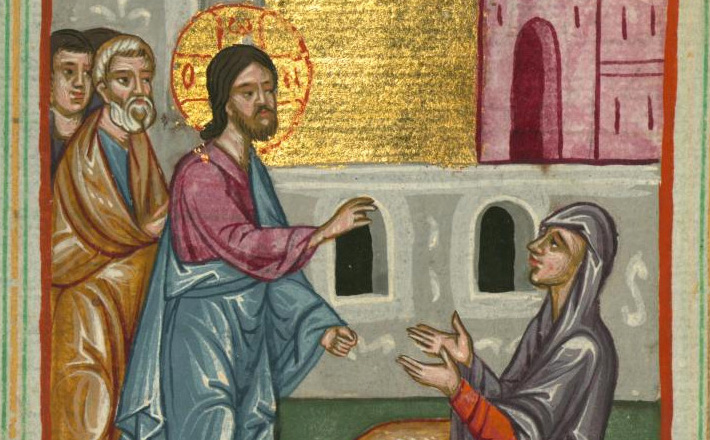Commentary on Psalm 67:1-7
This psalm is a favorite for several reasons.
Its repetitions and relative brevity make it memorable; its literary connections to other texts inform our biblical theology; and its aspirations for all nations and peoples to receive God’s blessings encourage a holistic understanding of God’s purposes on earth. Psalm 67 creatively integrates the priestly blessing of Israel and the ancestral promise of a blessing to the nations in order to project a renewed vision of the way things were meant to be from the beginning.
As clear as this thesis seems to be on the surface, the fact is that scholars have not agreed on matters as fundamental as the psalm’s translation and its setting and function. To be sure, these major issues do not sideline our attempt to incorporate Psalm 67 into Christian worship and preaching, but they can play into a more complete understanding of its powerful rhetoric. So, rather than separate my remarks into exegetical and homiletical comments, I instead will unpack the psalm’s message on three levels.
First, this psalm is aword of praise to God. Whatever we may think about the literary history and religious setting behind the final form of the psalm, we can derive insight and blessing from its “surface” message of praise. This is a community psalm of thanksgiving (or declarative praise) for a particularly abundant harvest with which God had blessed Israel (verse 6).1 And, of course, it is not merely Israel that praises God for a given harvest. “The peoples” are twice enjoined to praise the Lord in a refrain that surrounds (verses 3, 5) the central prayer of the psalm, which invites “the nations” joyfully to acknowledge God’s guidance and justice (verse 4).
Thus, whether it is Israel’s praise or the nations’ praise, they are “interwoven by means of the perspective of the world of the peoples.”2 Some scholars believe that this non-Israelite praise of God’s justice should be read in light of ancient Near Eastern traditions, where the sun god Shamash was known by the epithet, “the one who leads rightly.” But in Psalm 67, even Shamash’s devotees acknowledge that Israel’s God oversees the proceedings of creation and history.3 Although inspired by the bountiful produce of nature, this psalm depicts the whole world joining in the worship, not of nature itself, but of its sole creator.4
Second, as we look a bit deeper, we engage this psalm’s word of blessing on the world. Here we are reminded that the praise within the heart of the psalm is surrounded by prayers for blessing (verses 1, 7). At first glance, the blessing seems completely focused on Israel itself (“us” 3x in verse 1 and once in verse 7). Craig Broyles rightly calls verse 1 “an echo” of the beautiful Aaronic blessing of Numbers 6:24-27, which was spoken by the priests upon the people of Israel.5
However, verse 7 goes on to link God’s blessing on Israel with the hope that “all the ends of the earth [would] revere him.” It is difficult to miss the echo of Genesis 12:3, wherein the ancestral promises of land and descendants were associated with another promise, namely, that “in you all the families of the earth shall be blessed.” This surprising theological conclusion is a game-changer for our interpretation of the psalm. Both the praise and the prayer speak to Israel’s vocation as the elect messengers of the divine covenant to all nations who, after all, share a common ancestry with the nations as children of Noah. We therefore realize that the biblical theme of election “does not mean that God has his favorites but simply that he has a chosen channel of blessing for all.”6
Finally, and perhaps most subtle of all, we are confronted by this psalm’s word of challenge to the church. This multi-faceted prayer comes home with surprising force by virtue of the “voice” in which it is spoken. What had always been a benediction spoken just by Aaron’s priestly descendants is here taken up by the people at large. Yes, they respectfully hint at the full language of the benediction, so as not to usurp the office of the priesthood; but what nevertheless comes across is a public theology challenging Israel’s inward focus.
And when proclaimed in Christian worship, this psalm speaks to the church’s need ever to be vigilant in presenting God’s desire for the world to join in praise with his people. Not only do these ancient words critique an ecclesiology severed from mission; they also remind us that mission is both universal in its geographic scope and also prophetic in its concern for a world “torn by racial, ethnic, and national exclusivism and strife.”7
What strikes me most about this psalm is the fact that its wonderful spirit was not representative of the Old Testament. Throughout the canon, mention of the nations and peoples was typically negative.8 To find it here reminds the church that those who influenced the canonization of the psalms insisted on this poem’s inclusion. As heirs of their bold vision, may we insist on putting its hopes and prayers into action.
Notes:
1 Some scholars avoid the traditional form category of “thanksgiving” and prefer the term “prayer,” based on the abundance of jussive forms (“may,” “let”). See Marvin E. Tate, Psalms 51-100, Word Biblical Commentary (Waco, TX: Word Books, 1990), 155.
2 Frank-Lothar Hossfeld and Erich Zenger, Psalms 2, Hermeneia, trans. L. M. Maloney (Minneapolis: Fortress Press, 2005), 153.
4 Artur Weiser, The Psalms: A Commentary, Old Testament Library, trans. Herbert Hartwell (Philadelphia: Westminster Press, 1962), 473.
5 Craig C. Broyles, Psalms (Peabody, MA: Hendrickson Publishers, 1999), 278.
6 Ibid, 280.
7 J. Clinton McCann, Jr., “The Book of Psalms” in the New Interpreter’s Bible, vol. 4 (Nashville: Abingdon, 1996), 941.
8 An interesting way to connect this psalm with the other lectionary readings is to note how the gospel reading (Matthew 15: 21-28) tells of Jesus’ venture into the Gentile regions with a disturbing interaction.


August 17, 2014